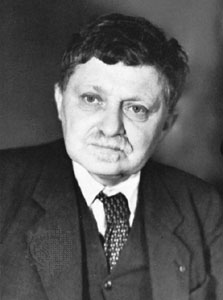A Quote by Yevgeny Zamyatin
There is no joy nobler than suffering for the sake of love for man.
Related Quotes
Feuerbach ... recognizes ... "even love, in itself the truest, most inward sentiment, becomes an obscure, illusory one through religiousness, since religious love loves man only for God's sake, therefore loves man only apparently, but in truth God only." Is this different with moral love? Does it love the man, this man for this man's sake, or for morality's sake, for Man's sake, and so-for homo homini Deus-for God's sake?
Romantic love is blind to everything except what is lovable and lovely, but Christ's love sees us with terrible clarity and sees us whole. Christ's love so wishes our joy that it is ruthless against everything in us that diminishes our joy. The worst sentence Love can pass is that we behold the suffering which Love has endured for our sake, and that is also our acquittal. The justice and mercy of the judge are ultimately one.
Love does not traffic in a marketplace, nor use a huckster's scales. Its joy, like the joy of the intellect, is to feel itself alive. The aim of Love is to love: no more, and no less. You were my enemy: such an enemy as no man ever had. I had given you all my life, and to gratify the lowest and most contemptible of all human passions, hatred and vanity and greed, you had thrown it away. In less than three years you had entirely ruined me in every point of view. For my own sake there was nothing for me to do but to love you.
The problem of reconciling human suffering with the existence of a God who loves, is only insoluble so long as we attach a trivial meaning to the word "love", and look on things as if man were the centre of them. Man is not the centre. God does not exist for the sake of man. Man does not exist for his own sake. "Thou hast created all things, and for thy pleasure they are and were created." We were made not primarily that we may love God (though we were made for that too) but that God may love us, that we may become objects in which the divine love may rest "well pleased".
I believe that there is something far nobler than loyalty to any particular man. Loyalty to the truth as we perceive it - loyalty to our duty as we know it - loyalty to the ideals of our brain and heart - is, to my mind, far greater and far nobler than loyalty to the life of any particular man or God. . . .
What nobler relationship than that of friend? What nobler compliment can man bestow than friendship? The bonds and ties of the life we know break easily, but through eternity one bond remains - the bond of fellowship - the fellowship of atoms, of star dust in its endless flight, of suns and worlds, of gods and men. The clasped hands of comradeship unite in a bond eternal - the fellowship of spirit.
The world is full of suffering. Birth is suffering, decre- pitude is suffering, sickness and death are sufferings. To face a man of hatred is suffering, to be separated from a beloved one is suffering, to be vainly struggling to satisfy one's needs is suffering. In fact, life that is not free from desire and passion is always involved with suffering.
I don't particularly believe all love is doomed. But I guess, one is usually kinda suffering from some aborted love affair or association, rather than being at the peak of one. I think it's fairly obvious that a lot more suffering goes on in the name of love than the little happiness you can squeeze out of it.





































